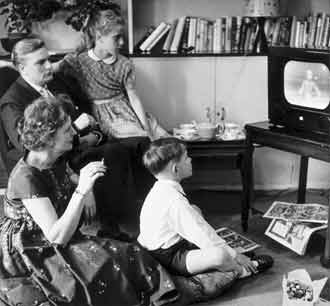Television shows and movies about the police have been a huge part of my popular culture consumption since I can remember; Dexter, Brooklyn 99, CSI, and 21 Jump Street are just a few of the many. No one enjoys settling in with Froot Loops, some knitting and a Netflix more than me. That said, it’s important to examine what we’re consuming. I believe cop shows provide a strong example of how entertainment can be used to affect public opinion about policy issues.
The messages dispensed about law enforcement by TV dramas, comedies and movies are far-reaching, ensuring that many segments of the population are affected. These shows can function individually, or as a unit; some place an idea at forefront of the storyline and others reinforce opinions by repetition and over-exposure. In either case, the majority of the time the police, whether they are gritty officers or benevolent ones, are portrayed as the heroes.
There are common themes. For instance: police being unable to catch the “bad guy” due to restrictions on their powers, complaints about their salaries and department budgets, and personal pressures justifying police brutality, which is framed so viewers sympathize with the officer rather than the victim.
Take Dexter, for example. He doesn’t have to go through the judicial process to kill people; he is able to find proper evidence and therefore he always gets his guy. It’s not just Dexter’s character who gets away with illegal searches. In Dexter Season 4, episode 10, when Deb and Angel don’t have enough evidence to obtain a warrant, they collect a suspect’s DNA without one. This invasion of privacy and collection of inadmissible evidence is framed as the only option; their actions are later justified when the suspect is found guilty. However, the show fails to take into account what might happen if the suspect wasn’t guilty, and does not address the repercussions of a wrongful conviction. In CSI we see another example, in season 2 episode 17, when Jimmy plants evidence at a crime scene in order to get a conviction. These depictions of legal rights as a mere nuisance can be read as supporting the idea that individual officers should be given more power, or that we need fewer restrictions on our judicial system.
In Brooklyn 99, Jake Peralta complains about his salary, in Dexter it’s Quinn who does so, and in CSI it’s Messer when he participates in the “Blue Flu”. In actuality the entry level salary for the RCMP is $50,647. After being an officer for only 36 months, the average salary is $82,108. Our current Prime Minister’s “tough on crime” agenda combined with police receiving more government money than other public services, makes me question if Laguerta’s complaints in Dexter (season 4) about the departments’ budget are accurate (at least in Canada). Could these depictions, and the countless others, lead Canadians to believe we need to put more money into our police system?
Another theme: personal pressures as justifications for police brutality by individual officers. These incidents are often framed so viewers empathize with the officer rather than the victim. In Dexter we see Deb tackle an unarmed child and pull a gun on him when frustrated at not finding ‘the Skinner’. Other examples, while intended to be humorous are in Brooklyn 99: Peralta arrests his suspect with no evidence for calling him “Joke Peralta.” In 21 Jump Street, when we see Jenko punch an innocent civilian in the face for refusing to give up his car for a police chase. Scenes like these trivialize police brutality. They reinforce assumptions that “the person deserved it” or that the officer was “just stressed,” and could support the argument for more resources and power for the police.
There is a connection between entertainment about cops and our continually growing police machine. On one level this may just be the result of TV writers giving people what they want. Police are used as characters because in the 24-hour news cycle culture, police and crime are a large part of our experience, and this familiarity is reflected in good ratings. However, with a million dollar industry conducting extensive market research, nothing is an accident.
Maybe these shows are trying to counteract all the negative attention police officers have been getting in recent years? Or maybe they could even be trying to shape public opinion about policy issues? Product placement is now a large part of advertising and companies say it works because in this setting people don’t have the same critical lens up when taking in the information because they don’t realize they are watching advertisements. Could police shows be using, to coin a term, ‘policy placement’? Would the viewers be more open to a public policy position if they didn’t realize they were taking in political information?
Police shows date back to the early 1950’s, and according to Global Research the police state in the US also began around this time, sparking wide spread public debate. In addition, Louis St. Laurent, the Canadian Prime Minister in that period is criticized for allowing too much US influence.
The rise of police shows at this time in history influenced public opinion about the emerging police state within a hostile environment. Police shows serve the same purpose today — reinforcing this policy position.
I don’t think these shows are the sole cause of public support for the police state, or that they should be taken off the air. However, we need to remain critical when we are watching TV and movies for entertainment, and work to ensure they aren’t affecting our perception on things that really matter.
Jen Turner has a degree in Family and Community Social Services and a Master’s in Public Policy and Administration. Her interests are in politics, social justice, policy, and procrastination. She enjoys combining these interests and writing about it.




